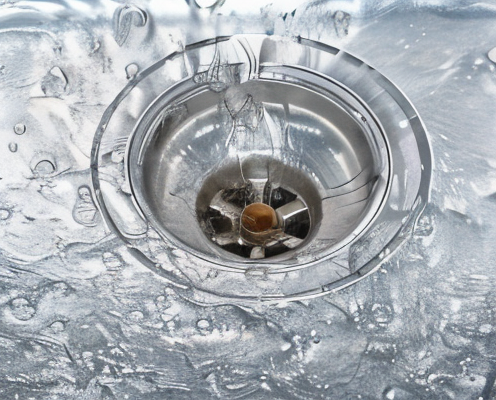A slow-draining sink is a common household nuisance, turning simple tasks like washing dishes into a frustrating waiting game. While it’s easy to assume the worst, this problem is often a sign of a specific, solvable issue. Understanding the root cause is the first step to getting your sink back to full speed.
Common Causes for a Slow Sink Drain
The most frequent culprit behind a slow sink is a clog. Over time, substances like hair, soap scum, grease, and food particles accumulate on the walls of your pipes, narrowing the passageway for water.
Finally, the issue might be a more complex venting problem. All plumbing systems rely on vents to allow air into the pipes, which prevents a vacuum from forming and lets water drain smoothly. If a vent is clogged with debris, it can create a vacuum that causes a slow drain and, sometimes, a gurgling sound.
Solutions You Can Try Yourself
If your sink is draining slowly, there are a few simple methods you can try before calling a professional.
-
Plunging: A good old-fashioned sink plunger can often dislodge minor clogs.
Ensure you get a good seal over the drain and plunge a few times with force. -
Baking Soda and Vinegar: This is a popular and chemical-free method. First, pour about half a cup of baking soda down the drain, followed by half a cup of vinegar.
The mixture will fizz, which helps to break down clogs. Let it sit for about 15 minutes before flushing with hot water. -
Cleaning the Pop-up Stopper: If your sink has a stopper, try removing it. You can usually unscrew it or detach a small lever under the sink. You might be surprised by the amount of hair and grime you find.
When to Call a Professional
While DIY fixes work for many minor clogs, there are times when you need an expert.
- The drain is completely blocked and no water is passing through.
- You’ve tried multiple DIY methods without success.
- You hear a gurgling sound coming from the drain.
-
The problem is recurring, suggesting a deeper issue in your plumbing system.

